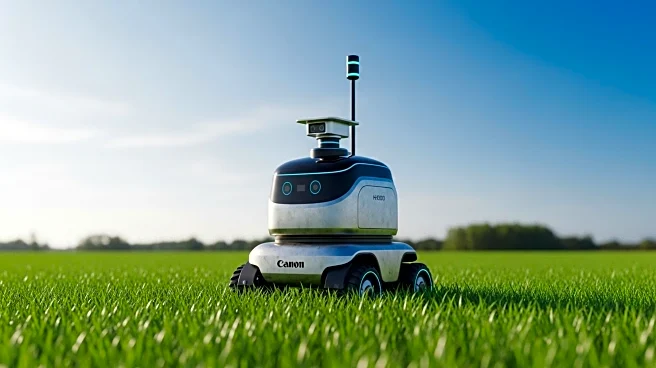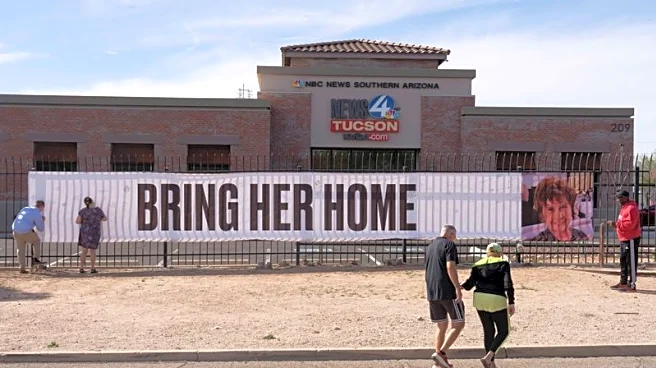What's Happening?
Burro, a company specializing in autonomous robots for outdoor work, has announced a significant expansion of its robot fleet at Petitti Family Farms in Lake County, Ohio. The farm will increase its fleet of Burro Grande robots from 10 to 25 by the end of the year. These robots are designed to tow heavy payloads of plants and materials across the farm's 400 acres, and new workflows for autonomous spraying are planned. The expansion aims to address labor shortages and improve productivity in challenging weather conditions. Petitti Family Farms, which spans over 4,000 production acres, produces and ships millions of plants annually. The farm's president, Joe Allio, noted the quick adoption of the robots by employees and their immediate impact on production efficiency.
Why It's Important?
The expansion of Burro's autonomous robot fleet at Petitti Family Farms highlights the growing role of automation in agriculture, particularly in addressing labor shortages and enhancing productivity. As the U.S. faces increasing challenges in labor-intensive industries, automation and AI technologies are becoming crucial for long-term viability. This development is significant for the agricultural sector, which is part of a $1.2 trillion outdoor labor market. By boosting productivity per employee, farms can maintain profitability despite labor shortages. The successful integration of these robots at Petitti Family Farms could serve as a model for other farms seeking to enhance efficiency and scalability through technology.
What's Next?
The partnership between Burro and Petitti Family Farms is expected to continue growing, with potential plans to expand the robot fleet further. As the farm evaluates the impact of the current expansion, it may consider deploying up to 50 robots across its operations. This ongoing collaboration could set new benchmarks for productivity and quality in agriculture, influencing other farms to adopt similar technologies. The success of this initiative may also drive further advancements in autonomous technology, as Burro continues to refine its AI and machine learning models based on real-world data collected from diverse environments.
Beyond the Headlines
The integration of autonomous robots in agriculture raises important ethical and cultural considerations, particularly regarding the future of labor in the industry. While automation can alleviate labor shortages, it also prompts discussions about the displacement of traditional farming roles and the need for upskilling workers. Additionally, the environmental impact of deploying robots in diverse weather conditions must be assessed to ensure sustainable practices. As technology continues to evolve, the balance between human labor and automation will be a critical factor in shaping the future of agriculture.











